"Ezio is a bit of cliche": Patrice Désilets on Prince of Persia, Ancestors, and why he hasn't played an Assassin's Creed game since Brotherhood
With Ancestors: The Humankind Odyssey out now on Xbox One, Patrice Désilets looks back on his epic, genre defining career
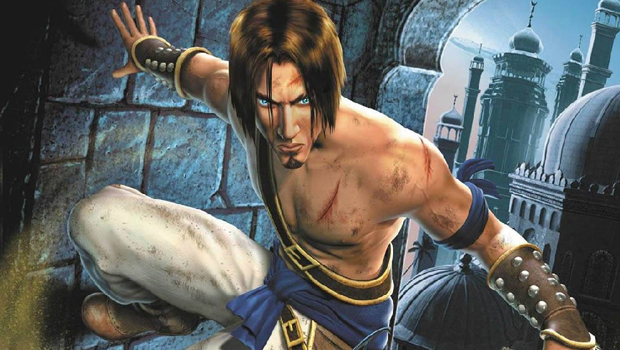
Over the past 20 years, Patrice Désilets has amassed ten official game credits. Compared to most high-profile industry figures, that's a fairly small CV. Yet when said resume rocks three bona fide masterpieces, our collective caps should be well and truly doffed to this hugely influential, Montreal-based designer.
Not only did Désilets make Prince Of Persia relevant for the first time in 15 years with 2003's wonderful The Sands Of Time, in the process of making a new POP game he also created arguably the iconic third-party series of the last two decades... Assassin's Creed.
The mastermind behind Altaïr and Ezio's stab-happy historical adventures, Désilets is responsible for helming the most beloved entries in Ubisoft's chart-topping franchise. After parting ways with the French publisher, he created his own studio, Panache Digital Games, going on to make one of 2019's most conceptually interesting games, Ancestors: The Humankind Odyssey.
We recently caught up with the esteemed game director to talk Xbox homo sapiens, the origins of Assassin's Creed, what makes a great video game reboot, and why you shouldn't believe every Donald Duck-related rumour you read on the interwebs.
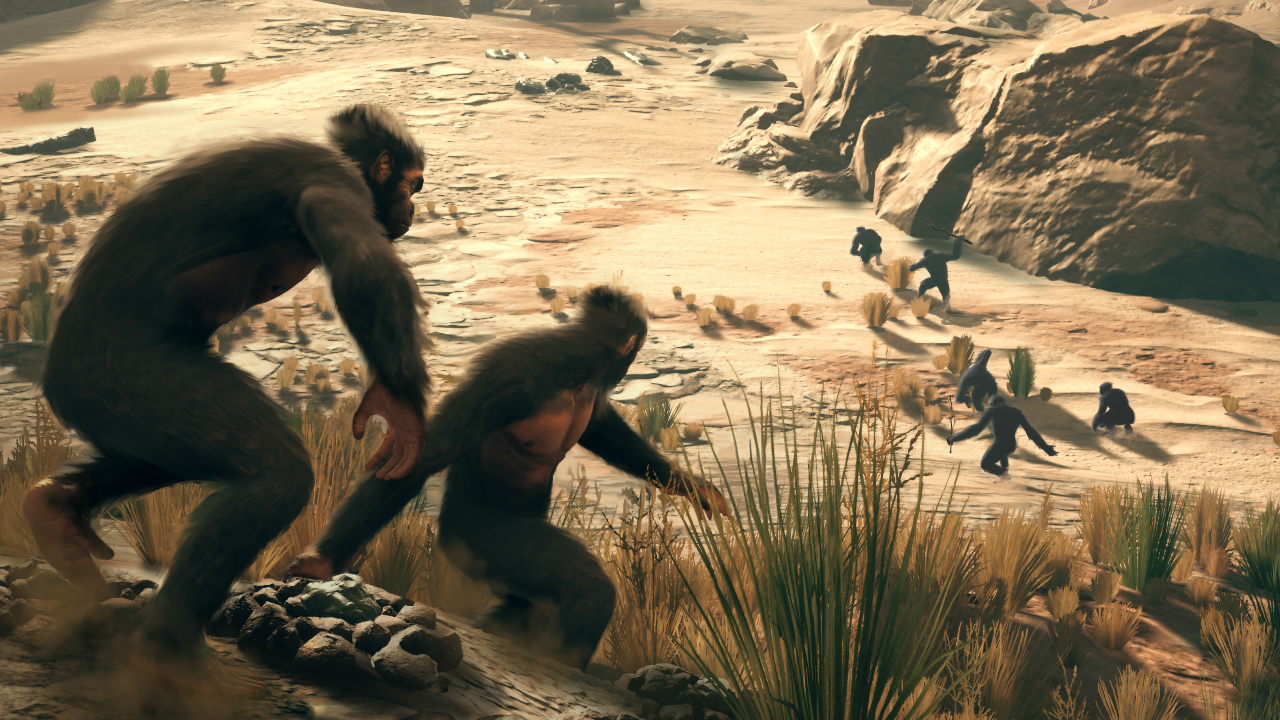
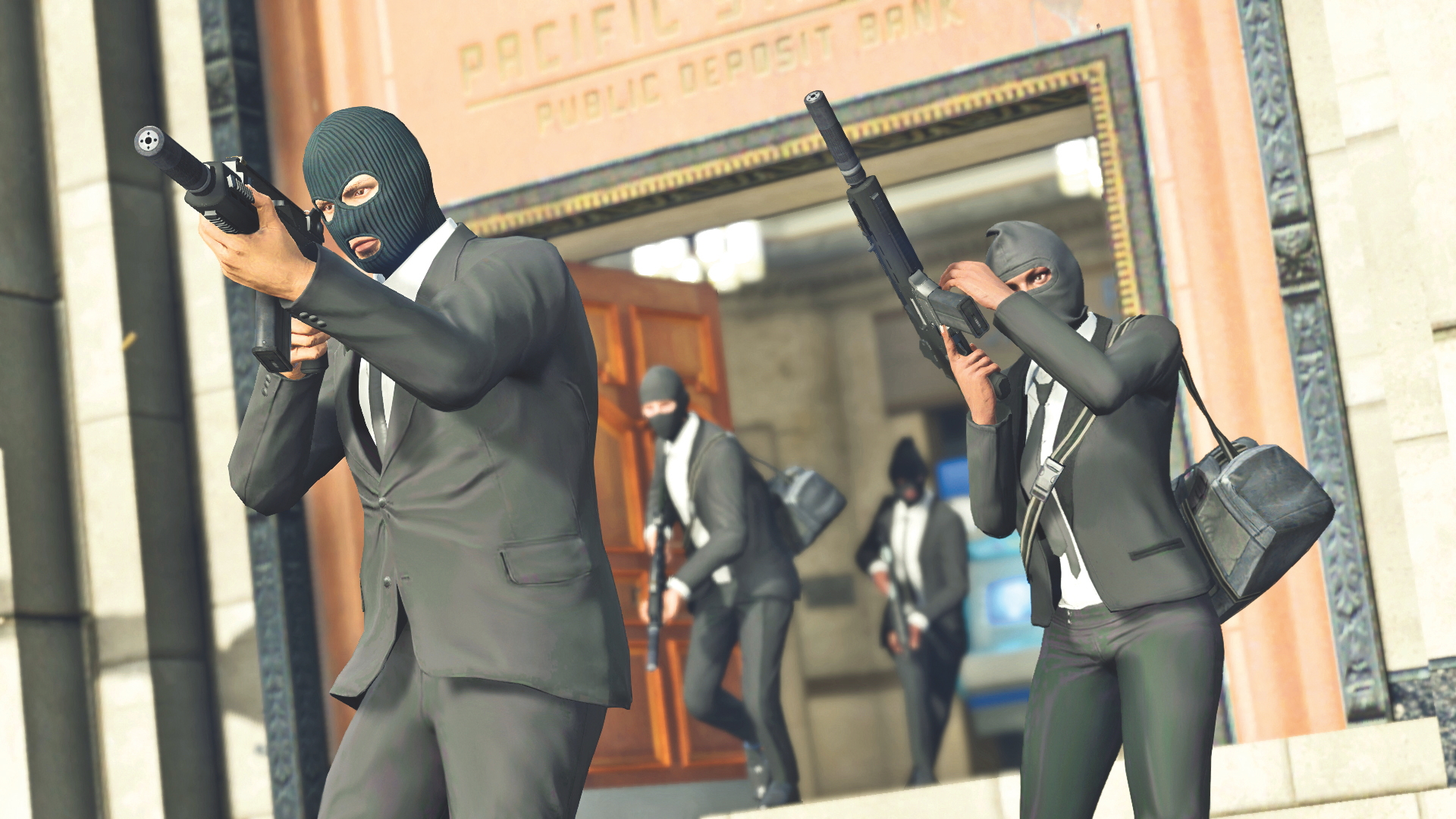
GTA 5's swappable triad is still the smartest idea Rockstar has contributed to video games
How daunting was starting your own studio back in 2014? Was founding Panache one of the biggest gambles of your career?
It was a big thing, but not as much as becoming a father... but yeah, it was kind of a big deal. But at the same time I feel it was time to start my own shop. It was a long process, because we were founded in 2014, we received some money in 2015, and we actually opened up the studio in July of 2015. It was a two-year process [getting the studio up and running]. And then it was four years of making the game. So in all it's been a six-year journey [to finish Ancestors]. But it's been great, and like I said, at the end of the day, I think I was at a point in my career where I needed my own studio to actually build the type of games that I wanted to make... games that are a bit 'outside the box', with different subject matters. With all my knowledge built up from 20 years of making games, I was ready.
There were nine years between Assassin's Creed Brotherhood hitting shelves and Ancestors: The Humankind Odyssey launching. What lessons have you learned over that time?
Weekly digests, tales from the communities you love, and more
My chain of thought has evolved to be more focused around letting the player really be a part of the experience. I don't want them just to go through what I have designed with my team or what I have written... if it really is an interactive medium, [the relationship between player and designer] has to be 50/50 somehow. So we, as game designers, are really the ones proposing situations about how the game plays, and then it's really about the player who will finish the experience. It's all about giving gamers freedom; freedom of choices, of experiences. That's been the main learning experience of the past ten years. Ancestors is a good example of that chain of thought. It's your own experience of human evolution, and it's not really the one we wrote for you. The process is always evolving. In past game talks I've given, I've said that game designers, we're like firefighters. But we're pyromaniacs at the same time, which is weird. So we create something on paper, or even on the screen, and then inevitably it doesn't all work, and then you have to fight the fire you just created. [Game design] is always moving, it's always evolving, it's always changing.
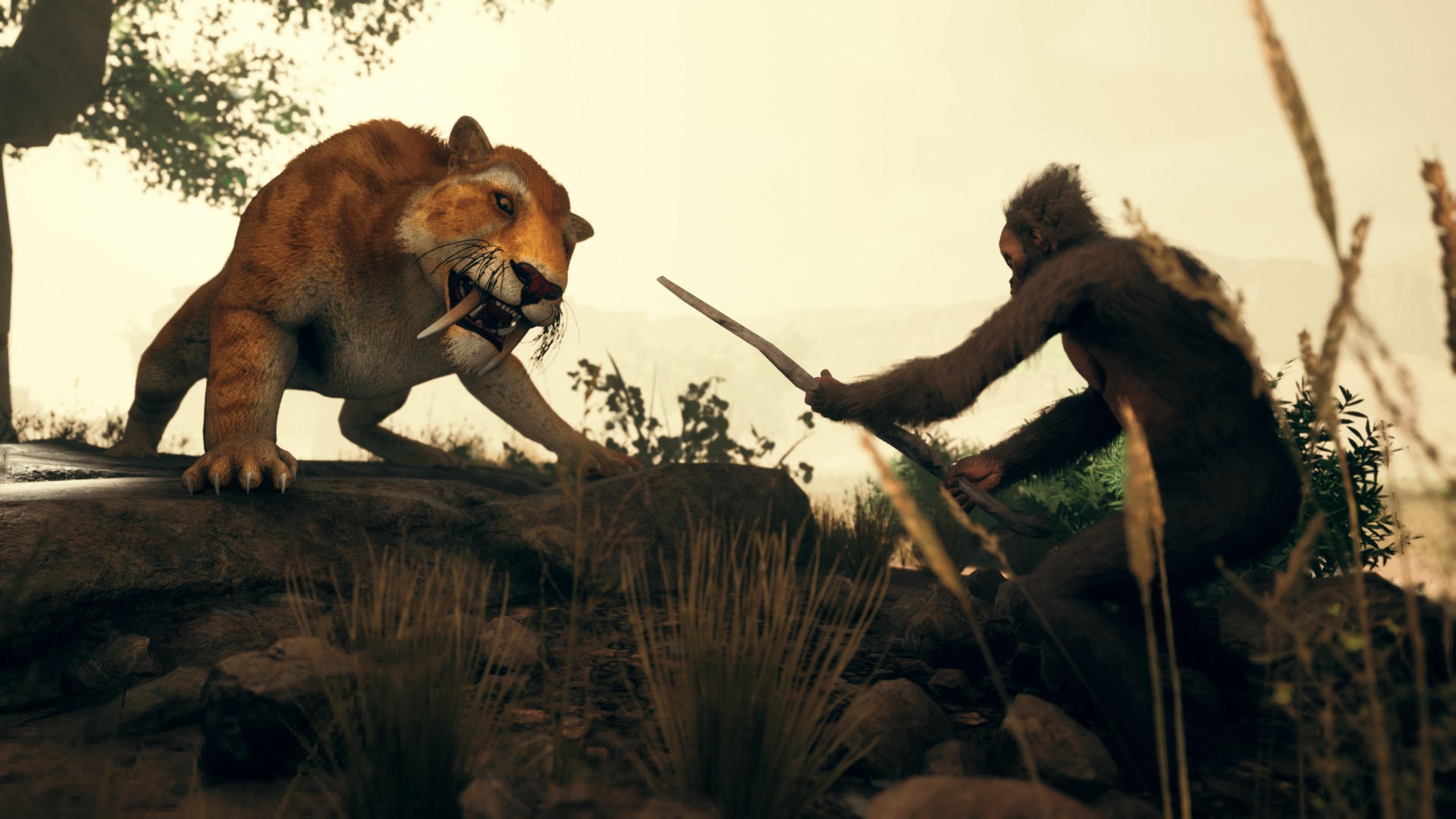
Ancestors refuses to hold your hand. Were you at all concerned that you were asking too much of players?
We came up with that conclusion and solution [regarding difficulty] because of the subject matter. It's like, "How can you make a game about a character who doesn't know much about what's going on, while being played and controlled by someone who knows everything?" So we made the decision that if we wanted the player's sapiens to actually experience human evolution, [the player] had to be in the same knowledge sphere as the main character of the game. The subject matter informed that decision. Right now I'm writing my next game, and because it's not as obscure as Ancestors in terms of subject matter, we'll have to explain some portions of the game as we find the narrative aspect of that title.
But at the same time, I feel like in the Xbox version of Ancestors, since it was released some months after the PC version, we managed to keep this idea of the player going through human evolution, but we also help you out a little bit more by being a little clearer in teaching you how the game works. I think around 30 or 45 minutes in, the player is thinking, "They really want me to relive evolution." Eventually you get the concept, then it's all about all the choices that shape the adventure and [because of those choices] it becomes your own adventure. Because of the three-month gap between the PC and console versions, we managed to explain the game a little better so that you're not totally lost. But then again, there still isn't a map because our ancestors didn't have a map, they didn't know they were in Africa, and they didn't know they were evolving.
You once said you envisioned Ancestors as the first part of a trilogy. Do you still have the desire to make three Ancestors games? Would sequels see the primates gradually evolve into homo sapiens?
For sure. We didn't go through all of human evolution, so there are some years left for us to tackle in sequels down the road, because the game finishes around two million years ago, so we've still got two million years to cover eventually... so we'll see. We'll see if we do [a sequel] in the future. On paper, on the design board, it's done. Now it's just a matter of seeing when we're gonna do it.
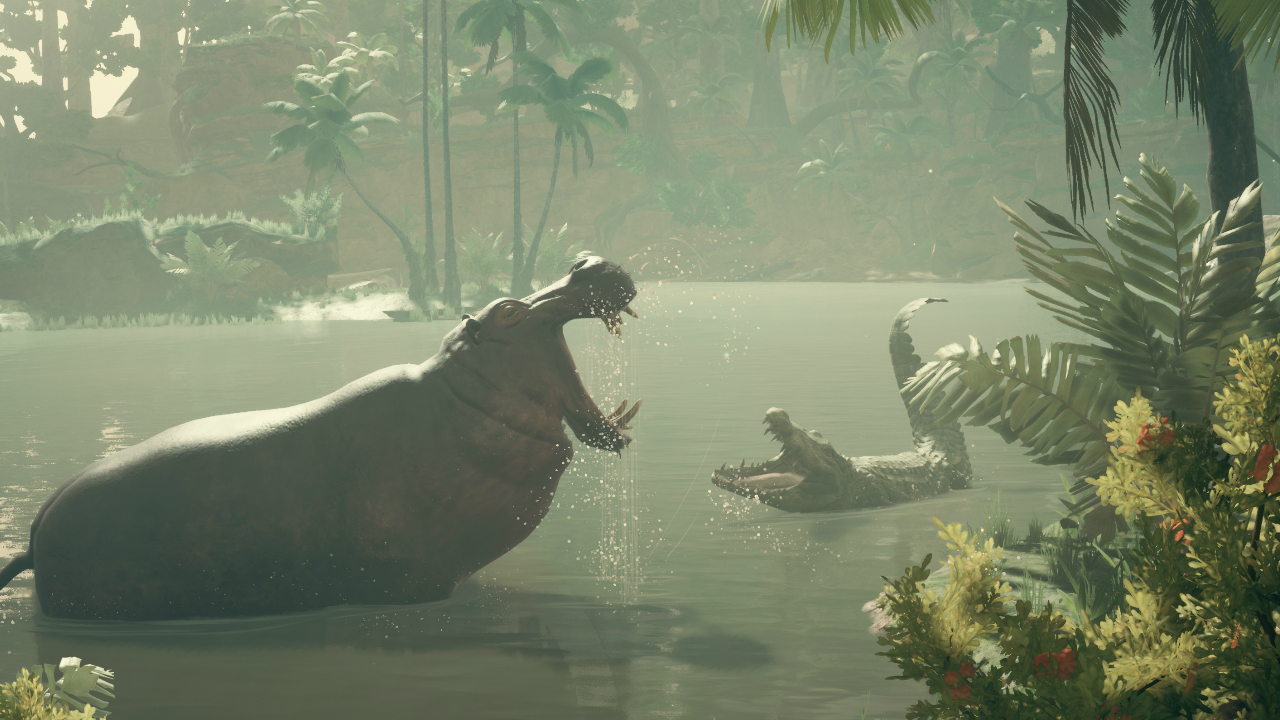
“With all the knowledge built up over 20 years, I was ready to start a studio.”
How difficult is it to recreate an ancient world and to mimic animal behaviour in a game?
It's never easy. The difficulty of recreating Africa ten million years ago is the fact that it's organic, there's no architecture. A computer prefers 90-degree angles, and as a player it's also tougher to read a really organic space. That was the main challenge: how do we make the game space readable for players so that they can eventually go and make choices. As for the animals, because I don't have a team of 800 people, we had to come up with clever situations and solutions to give the impression of complex animal behaviours.
How important is it to present intelligent discourse in games, and has gaming matured enough to be considered a valuable media for education?
Both Ancestors and Assassin's Creed certainly have educational aspects thanks to their very deliberate settings. I do believe that games can be an educational tool. In general, we learn through play, all animals, all of us. So video games are really just a very sophisticated way of playing. Every game we play, we learn something and some [lessons] are more useful than others, depending on the subject matter. For Ancestors, even though there's a lot of knowledge, a lot of science put into it, we didn't want [it to be] only about learning.
But if you read through all the details of everything in the game, it's all real scientific facts based around human evolution. We actually received a message from a fan who had just had a stroke, who said he had a hard time playing other games. Then he started to play Ancestors and he said he began to feel better. His brain was rewiring, just like the main characters in Ancestors, and because of the game's slower pace, it really let him experiment at his own speed. And so when we received this message, we were like, "Holy cow!" The game was not designed around that idea, that it could help you out after a stroke. But then this happens [with this fan] and it's magical. That's really deep learning. It's something else. He couldn't play his beloved first-person shooter anymore, so he was stuck with us. And then he went, "Oh, I feel better just like the character on the screen," which is kind of like an inception moment right there.
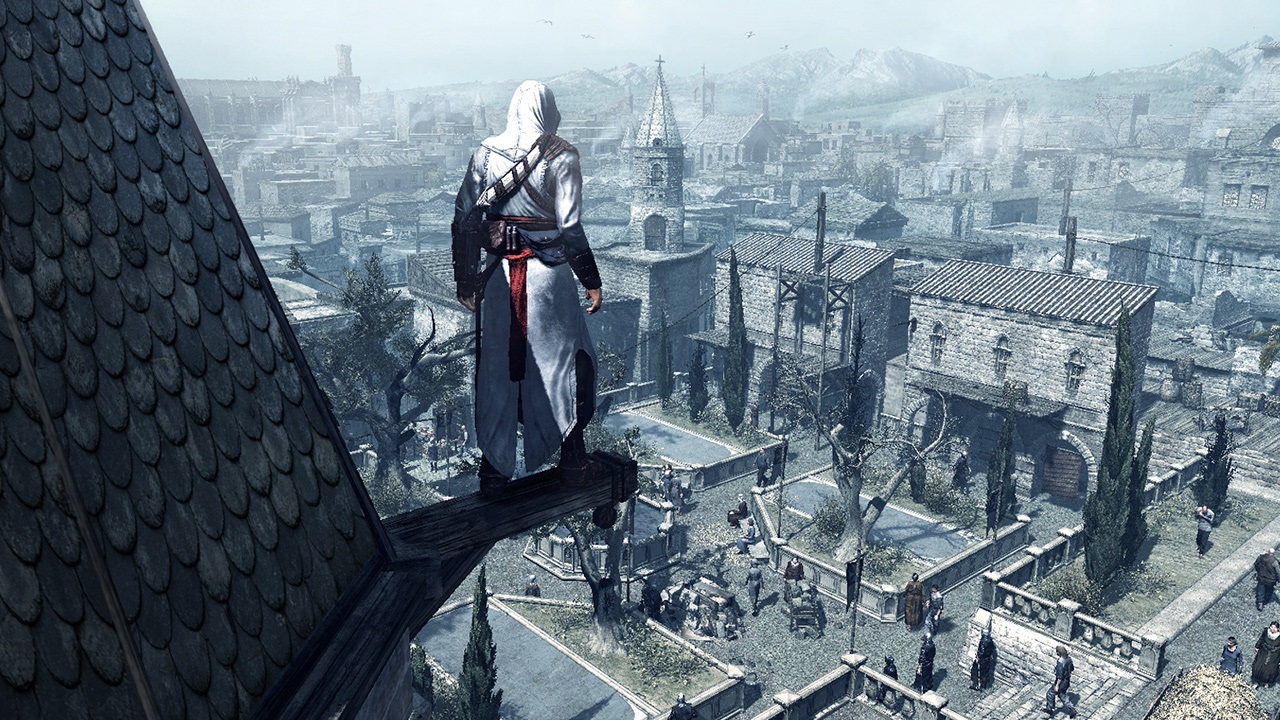
Shifting focus to your time as game director on the Assassin's Creed franchise, why do you think games have never really touched the Crusades era since Altaïr's adventure?
You should ask all the other developers. For me personally, I've done that [setting], so the Crusades are a bit 'been there, done that'. For the rest of the community, especially if you've got a smaller studio, it's not that easy to recreate a time period in general. Also, if you did a Crusades game now you would be compared to Assassin's Creed, so maybe some devs say, "You know what? I'll pass." But at the same time, I guess there was Kingdom Come: Deliverance. Still, the first Assassin's Creed did the Crusades and then there were another seven of them [that didn't touch the period], so maybe another game could be done about the Crusades.
Why do you think AC II's Ezio has become so popular with gaming audiences?
I think there are two reasons, if I analyse it. One reason is that Ezio is a bit of a cliché of the Italian golden boy. People can relate to this guy; they think they know Ezio from the start. They get the fantasy really quickly. The main reason I think people got really attached to him is because the character and the player are linked by the same sense of progression. At the beginning of Assassin's Creed II Ezio is not an Assassin, and throughout your journey and throughout his adventure, you both learn to become one, so the player is really relating to the character. The [player] and Ezio are on the same wavelength. I think the other reason is because we don't take ourselves seriously all the time. There's humour inside Assassin's Creed II, which I think helped people to relate with Ezio. I think that was a cool bonus. That title was also the second game, so we could use the technology to better recreate moments of emotion.
What are your thoughts on how Assassin's Creed has evolved since you left the franchise post-Brotherhood?
I don't really have an opinion because I didn't really play the series [after Brotherhood]. Look, I tried Assassin's Creed III for two hours, and then I realised that I was working instead of just playing, and so I said, "You know what? I'm having no fun, no pleasure, so I better quit." Since then, and I say this with a smile, but I shield myself against this question. Because everybody wants to know what I think about those games, right? But I didn't play them, because I can't... they're no fun [to me]. You have to understand, it's Ubisoft's game and it can do whatever it wants with the series. I don't mind.
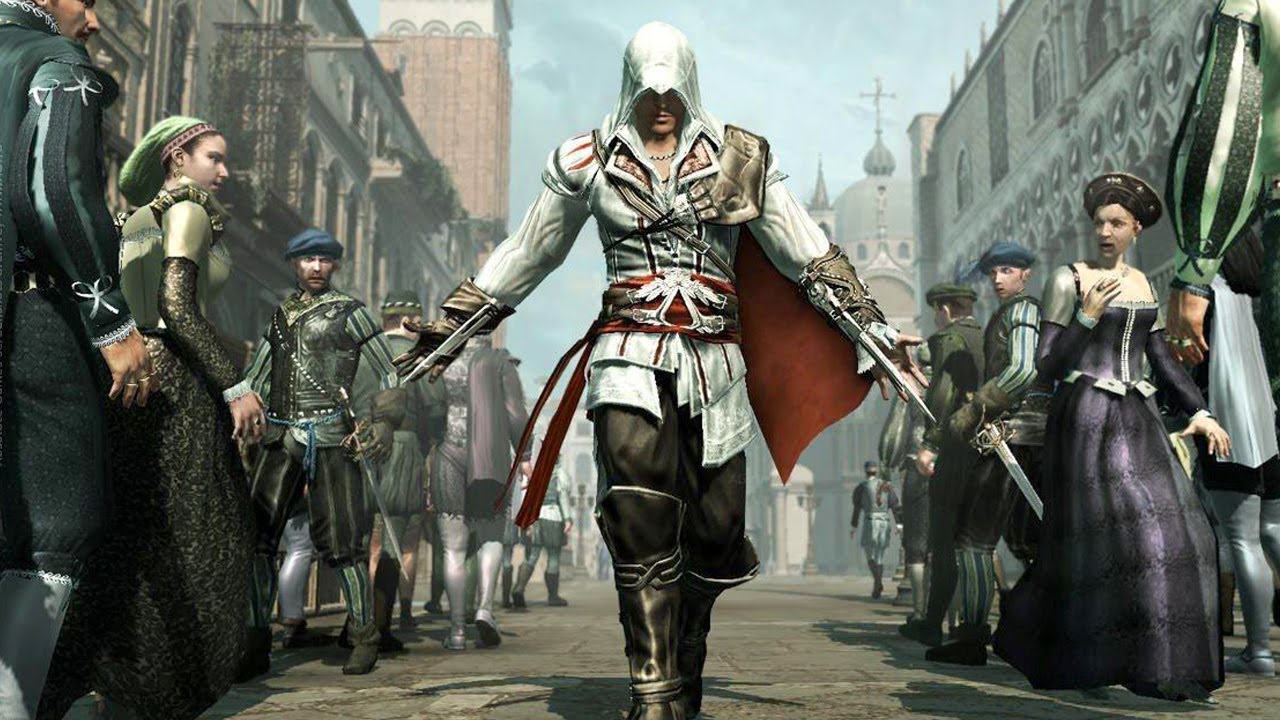
Prince Of Persia: The Sands Of Time is rightly considered to be one of the best reboots ever made. What's the key to making a great video game reboot? How important is it to nail the right balance between honouring what's come before and innovating on that with new ideas?
It has to be in love with what was done before. You have to start from scratch and say, "Okay, what is the core thing [the original game] has done?" Then it's not so much about recreating that but keeping the fundamentals; the fundamentals of character, of place. In terms of Prince Of Persia, it's about recreating the fundamentals of unfolding level and puzzle design; the fundamentals of trying to avoid traps, and the fundamentals of recreating the behaviours of the main character and their animations... but not trying to recreate it slavishly. I didn't play the first Prince Of Persia back in the day, and maybe I made [Sands Of Time] because I missed the original when it was out in the late '80s or beginning of the '90s. So I played [the original game] when I started working on the reboot, and after an hour I said, "Okay, I think I get it, but let's do something different." That's really it: don't try to slavishly recreate something that you loved in the past.
The original Assassin's Creed was initially going to be a Prince Of Persia title, correct? Do you think what Assassin's Creed went on to become could have ever fitted into the existing POP universe?
It was a mandate I received from my employer, which was to do a Prince Of Persia sequel for the next generation of consoles that tried to redefine the action-adventure genre. That was the mandate I received. But I had a hard time doing another game with the Prince. A Prince is not an action character per se. He's somebody who waits for mummy or daddy to die to take their place; he's the number two of an organisation. So I switched the organisation from a kingdom to the Assassin Brotherhood, so if you're the number two, you're the assassin of the Prince, and since the Assassins were in Persia, roughly put, that would be the Prince Of Persia. That's how the whole concept [of Assassin's Creed] started. But they're really not in the same universe, because deep down, Assassin's Creed is about history, while the Prince Of Persia series is about the One Thousand And One Nights [AKA Arabian Nights] type of stories. But both of them, at the end, sort of have that title. Altaïr is the Prince Of Persia.
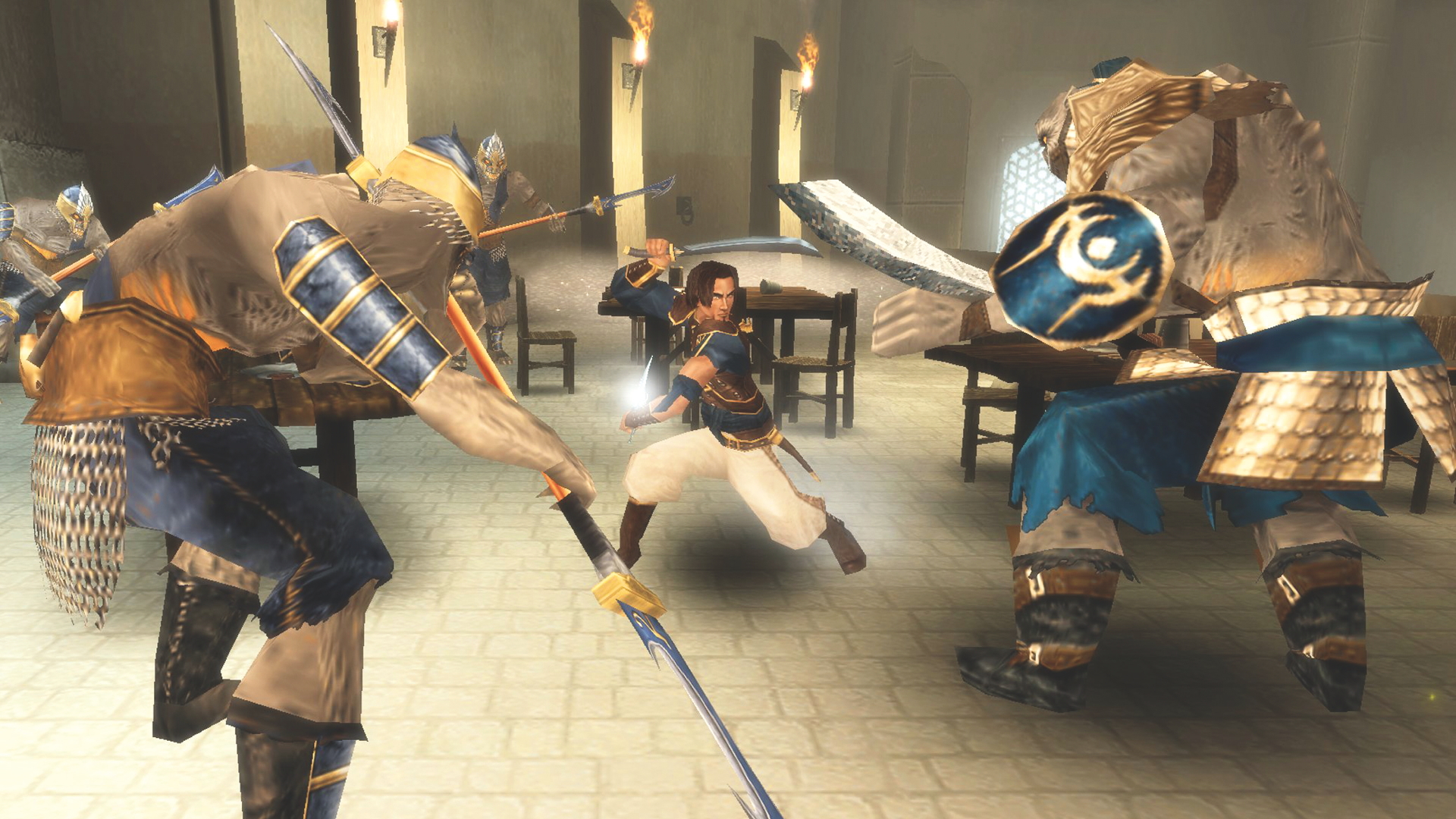
The Rewind feature in The Sands Of Time is genius. There are stories that you thought up the mechanic after becoming frustrated by a Donald Duck game. Is that really true?
That I came up with Prince Of Persia's Rewind mechanic from that? No! Donald Duck: Goin' Quackers was a game I was making before that. It was a game I made and then I moved onto Prince Of Persia. [The Rewind mechanic] was thought up because I was dying a lot in the first Prince Of Persia [on Amiga] and I found it boring to respawn.
And so I thought, "What if we have this rewind feature where you see your character instantly restart if you miss your jump or if you've been killed by a booby trap. So instead of just respawning, what if we see it [the character coming back]." That became the idea behind The Sands Of Time, which is really the fuel of the game. But back to Donald Duck: Goin' Quackers, that was just a game I made before, so I don't know who wrote that I came up with the Rewind feature while making Donald Duck!
We've started a new series that pits the team against each other with some fiendish gaming tests. Check out Challenge Radar Episode 2 here.



